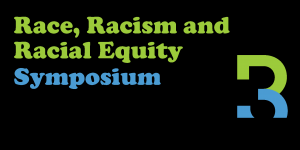R3 #4: The Many Faces of Environmental (In)Justice: Scholarship Addressing Racism, Infrastructure and Climate Action
View the fourth event of the R3 series, “The Many Faces of Environmental (In)Justice: Scholarship Addressing Racism, Infrastructure and Climate Action.”
See below for related resources.
Moderator:
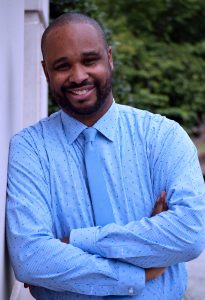 TRAVIS ALBRITTON is a Clinical Associate Professor and Associate Dean for Diversity, Equity and Inclusion at UNC-CH’s School of Social Work. He is the Director of the Chapel Hill 3-Year MSW Program and the Faculty Liaison for the Dual Degree MSW/M.Div. program. Dr. Albritton is a two-time recipient of the School of Social Work Excellence in MSW Advising Award. He has also received the School of Social Work Excellence in Teaching Award and has been recognized numerous times with the dean’s recognition for excellence in teaching. Dr. Albritton is the chairperson for the School of Social Work diversity committee and he serves on the University’s Diversity, Equity and Inclusion Council. Dr. Albritton was selected by the Council on Social Work Education to receive a competitive scholarship to participate in the Management Development Program offered by the Harvard Graduate School of Education. The program is designed to prepare mid-level managers to address the complex issues faced by leaders in higher education. His research interests include educational equity in K-12, academic achievement among Black males and the importance of closing educational opportunity gaps for children of all ages. He has presented nationally on various topics including Critical Race Theory, the importance of critical conversations in the classroom and the educational needs of Black male high school students.
TRAVIS ALBRITTON is a Clinical Associate Professor and Associate Dean for Diversity, Equity and Inclusion at UNC-CH’s School of Social Work. He is the Director of the Chapel Hill 3-Year MSW Program and the Faculty Liaison for the Dual Degree MSW/M.Div. program. Dr. Albritton is a two-time recipient of the School of Social Work Excellence in MSW Advising Award. He has also received the School of Social Work Excellence in Teaching Award and has been recognized numerous times with the dean’s recognition for excellence in teaching. Dr. Albritton is the chairperson for the School of Social Work diversity committee and he serves on the University’s Diversity, Equity and Inclusion Council. Dr. Albritton was selected by the Council on Social Work Education to receive a competitive scholarship to participate in the Management Development Program offered by the Harvard Graduate School of Education. The program is designed to prepare mid-level managers to address the complex issues faced by leaders in higher education. His research interests include educational equity in K-12, academic achievement among Black males and the importance of closing educational opportunity gaps for children of all ages. He has presented nationally on various topics including Critical Race Theory, the importance of critical conversations in the classroom and the educational needs of Black male high school students.
Panelists:
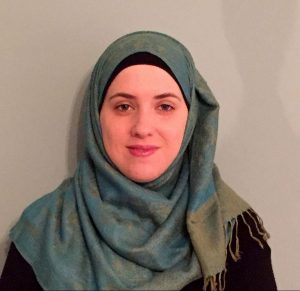 ANDERSON (ANDY) AL WAZNI, MSW (third-year Doctoral Student. UNC School of Social Work and adjunct faculty at Smith College MSW Program). Andy received her bachelor’s degrees in Religious Studies and Interdisciplinary Studies at N.C. State University. During this period, she studied abroad in South and Southeast Asia and was inspired by innovative humanitarian work by local organizations and international NGOs in the area of women’s health, environmental justice, and anti-poverty work. She received her Master’s in Social Work from Smith College in 2014 where she completed a thesis on Muslim women and feminist identity. Following graduation, Andy has published, given public talks, and run CEU seminars in the area of Islamophobia, trauma, and Muslim women’s identity. Her current research explores the nexus between climate change, violent conflict, and disease spread with a particular interest in mortality and health outcomes amongst children under the age of five in fragile states. She is also the recipient of the inaugural class of the Social Work Health Futures Fellowship, sponsored by the Robert Wood Johnson Foundation and Portland State University.
ANDERSON (ANDY) AL WAZNI, MSW (third-year Doctoral Student. UNC School of Social Work and adjunct faculty at Smith College MSW Program). Andy received her bachelor’s degrees in Religious Studies and Interdisciplinary Studies at N.C. State University. During this period, she studied abroad in South and Southeast Asia and was inspired by innovative humanitarian work by local organizations and international NGOs in the area of women’s health, environmental justice, and anti-poverty work. She received her Master’s in Social Work from Smith College in 2014 where she completed a thesis on Muslim women and feminist identity. Following graduation, Andy has published, given public talks, and run CEU seminars in the area of Islamophobia, trauma, and Muslim women’s identity. Her current research explores the nexus between climate change, violent conflict, and disease spread with a particular interest in mortality and health outcomes amongst children under the age of five in fragile states. She is also the recipient of the inaugural class of the Social Work Health Futures Fellowship, sponsored by the Robert Wood Johnson Foundation and Portland State University.
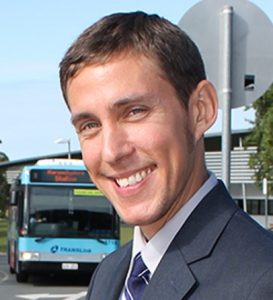 SETH LAJEUNESSE (Senior Research Associate, Highway Safety Research Center). The “pluralistic ignorance” project is all about de-centering whiteness and speaking people’s transportation-related lived experience to power. In the penultimate stage of the research, we’ll illustrate the inherent racism of our transportation system and show how it totally neglects the needs and aspirations of people of color. The last stage is working with inspiring groups and individuals to tell and demonstrate to everyone how our transportation system serves the white and privileged and neglectingBlack and Brown people—who are 2-3 times more likely to suffer injury or death when simply walking or biking around, and that’s even before we talk about these folks’ encounters with law enforcement. The tie to environmental justice is we need to get people out of their cars, low income and communities of color are already more likely to be out of cars and bike/ped/transit-dependent, they are also more likely to be impacted by climate change because of where they are able to live and the weatherization they are less able to afford, and how our transportation system perpetuates white supremacy by not meeting their needs.
SETH LAJEUNESSE (Senior Research Associate, Highway Safety Research Center). The “pluralistic ignorance” project is all about de-centering whiteness and speaking people’s transportation-related lived experience to power. In the penultimate stage of the research, we’ll illustrate the inherent racism of our transportation system and show how it totally neglects the needs and aspirations of people of color. The last stage is working with inspiring groups and individuals to tell and demonstrate to everyone how our transportation system serves the white and privileged and neglectingBlack and Brown people—who are 2-3 times more likely to suffer injury or death when simply walking or biking around, and that’s even before we talk about these folks’ encounters with law enforcement. The tie to environmental justice is we need to get people out of their cars, low income and communities of color are already more likely to be out of cars and bike/ped/transit-dependent, they are also more likely to be impacted by climate change because of where they are able to live and the weatherization they are less able to afford, and how our transportation system perpetuates white supremacy by not meeting their needs.
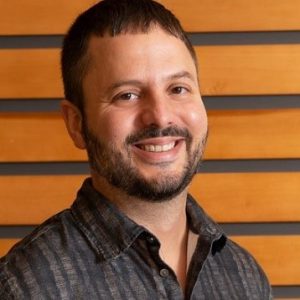 MORGAN RICHEY (PhD Student, Epidemiology). Morgan Richey is a newly graduated PhD working as a postdoctoral associate at the Department of Population Health Sciences at the Duke School of Medicine. His work focuses on differences in exposures and outcomes among vulnerable groups at work, at school, in the healthcare space, as well as the built environment. Morgan’s first degree was his GED, which enabled him to observe firsthand the variety of differential treatments and outcomes experienced by vulnerable groups in the D.C. metro area. These experiences motivated his trajectory, completing his associate’s degree at community college, bachelor’s and master’s degrees at the University of Virginia, followed by his PhD in epidemiology at the UNC Gillings School of Global Public Health. His dissertation “Surveillance of Fatal Occupational Injury Trends Among Vulnerable Populations in North Carolina” identified high rates of occupational fatality among Latinx and older workers in North Carolina. He is also involved in collaborative research with faculty at North Carolina Central University, estimating the association between PM2.5, neighborhood diversity, and asthma exacerbation.
MORGAN RICHEY (PhD Student, Epidemiology). Morgan Richey is a newly graduated PhD working as a postdoctoral associate at the Department of Population Health Sciences at the Duke School of Medicine. His work focuses on differences in exposures and outcomes among vulnerable groups at work, at school, in the healthcare space, as well as the built environment. Morgan’s first degree was his GED, which enabled him to observe firsthand the variety of differential treatments and outcomes experienced by vulnerable groups in the D.C. metro area. These experiences motivated his trajectory, completing his associate’s degree at community college, bachelor’s and master’s degrees at the University of Virginia, followed by his PhD in epidemiology at the UNC Gillings School of Global Public Health. His dissertation “Surveillance of Fatal Occupational Injury Trends Among Vulnerable Populations in North Carolina” identified high rates of occupational fatality among Latinx and older workers in North Carolina. He is also involved in collaborative research with faculty at North Carolina Central University, estimating the association between PM2.5, neighborhood diversity, and asthma exacerbation.
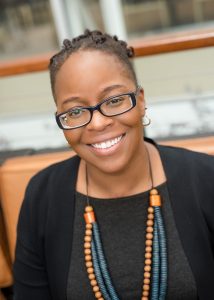 DANIELLE SPURLOCK (Assistant Professor, Department of City and Regional Planning). Danielle Spurlock is an assistant professor in the Department of City and Regional Planning at the University of North Carolina at Chapel Hill. Her research focuses on the quality and implementation of plans and policy in urban contexts with special attention to environmental and social justice. Dr. Spurlock’s work investigates how technical expertise and local knowledge can be synthesized within local policies that address green gentrification, displacement, and health disparities. Her motivation to engage in this research stems from the disincentives many stakeholders have to alter their behavior and decision-making processes to protect the health and well-being of marginalized populations and environmental resources. She holds a Ph.D. in Land Use and Environmental Planning, an MRP in Housing and Community Development, an MPH in Public Health from the University of North Carolina at Chapel Hill, and a BA in Human Biology from Stanford University.
DANIELLE SPURLOCK (Assistant Professor, Department of City and Regional Planning). Danielle Spurlock is an assistant professor in the Department of City and Regional Planning at the University of North Carolina at Chapel Hill. Her research focuses on the quality and implementation of plans and policy in urban contexts with special attention to environmental and social justice. Dr. Spurlock’s work investigates how technical expertise and local knowledge can be synthesized within local policies that address green gentrification, displacement, and health disparities. Her motivation to engage in this research stems from the disincentives many stakeholders have to alter their behavior and decision-making processes to protect the health and well-being of marginalized populations and environmental resources. She holds a Ph.D. in Land Use and Environmental Planning, an MRP in Housing and Community Development, an MPH in Public Health from the University of North Carolina at Chapel Hill, and a BA in Human Biology from Stanford University.
Related Resources:
Websites:
- The Pacific Institute. https://pacinst.org/
- NOAA. https://www.climate.gov/maps-data
- Groundswell Report, World Bank. https://www.worldbank.org/en/news/infographic/2018/03/19/groundswell—preparing-for-internal-climate-migration
- https://www.worldbank.org/en/news/infographic/2018/03/19/groundswell—preparing-for-internal-climate-migration
- www.citizenscience.gov
- www.purpleair.com
- Destiny Thomas’ Thrivance Group – https://thrivancegroup.com/tools-and-resources
- The Untokening – a multiracial collection centering the lived experiences of marginalized communities to address mobility justice and equity. http://www.untokening.org/summary
- Salzburg statement on “Confronting Power and Privilege for Inclusive, Equitable, and Healthy Communities” – https://www.salzburgglobal.org/news/statements/article/confronting-power-and-privilege-for-inclusive-equitable-and-healthy-communities
- National Equity Atlas, a national report card on racial and economic equity in the U.S. – https://nationalequityatlas.org/
- ELGL podcast, “Mobility and Equity with Charles T. Brown, CEO of Equitable Cities” – https://elgl.org/podcast-mobility-equity-with-charles-t-brown-equitable-cities/
- Urban Institute’s “How Transportation Planners Can Advance Racial Equity and Environmental Justice” – https://www.urban.org/urban-wire/how-transportation-planners-can-advance-racial-equity-and-environmental-justice
- Jennifer Dill’s (Portland State University) “Transportation, Race and Equity: A Syllabi Resource List for Faculty” – https://docs.google.com/document/d/1nLbMbap2s4ISJYJVroAMwFfAoiJPoHxToRVCMWTaOzg/edit


